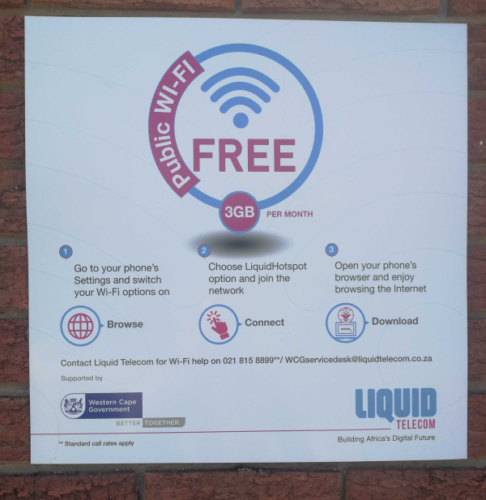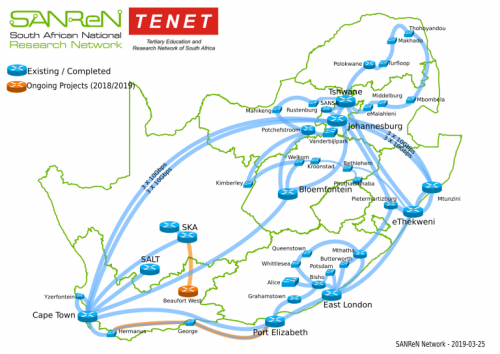TENET and the Western Cape Government, in partnership with Liquid Intelligent Technologies, have been piloting eduroam in four of the Western Cape provincial hospitals:
- Khayelitsha Hospital
- Tygerberg Hospital
- Groote Schuur Hospital
- Mowbray Maternity Hospital

The continuation and expansion of this programme within the hospitals and into other hospitals depend on the provincial Department of Health seeing value in the deployment. Unfortunately it seems that the demand on these four sites has been lower than anticipated, which could mean that there’s a risk that the pilot will not be extended.
We would like to encourage staff and especially students who are on placement within one of the four hospitals where the trial is available to make use of the eduroam facility.
Unfortunately, eduroam coverage isn’t (yet) ubiquitous, with only a few access points in each hospital carrying the network. Currently eduroam is available near the main entrances of each of these hospitals or close to staff areas. In particular, it is likely to be found close to signage for Liquid’s own Free Public Wi-Fi (see image right)
Once connected, students should be able to get Internet access without the usual cap that applies to the public Wi-Fi in those locations.
More on the use of eduroam can be found on our service catalogue.



 If you’ve been surfing YouTube the past week, whether for academic purposes or for your video fix, you might have noticed something interesting – Inetkey wasn’t always necesary to access videos. And you observation would be correct.
If you’ve been surfing YouTube the past week, whether for academic purposes or for your video fix, you might have noticed something interesting – Inetkey wasn’t always necesary to access videos. And you observation would be correct.